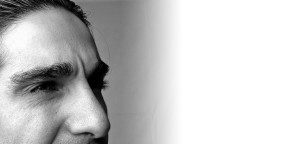Symptoms and signs of clinical depression in men can differ from those in women. Many men do not talk about feelings of depression or any feelings at all. However, depression in men is common and when they suffer from depression, it puts men at risk of suicide, according to the National Institutes of Mental Health. Learning how to identify depression symptoms in men can prevent use of unhealthy coping skills or failure to cope at all.
Common Clinical Depression Symptoms for Men
Men and women suffering from depression may feel sad, tired, experience trouble sleeping, and fail to enjoy activities that they used to love. However, men experience additional clinical depression symptoms that may not immediately be identified. These include behaviors that are risky, such as driving recklessly, or escapist, such as devoting an excessive amount of time to sports or work. Some men become very irritable or become angry at inappropriate times and others exhibit behavior that is controlling, abusive, or violent.
Alcohol or substance abuse is another of the depression symptoms in men that often goes unrecognized. Behaviors such as this could be indications of or may overlap other mental health problems, making accurate diagnosis and treatment important. Though researchers have not identified why men experience depression differently, it may have to do with hormones, brain chemistry, and life experiences.
Diagnosing Depression Symptoms in Men
There are several reasons why a man may not be diagnosed with depression. Many men experience primary clinical depression symptoms other than sadness. These include digestive problems, headaches, and chronic pain, which are not typically associated with depression. Men who do make the association may downplay their symptoms. Others may be reluctant to discuss these symptoms with others because they feel it will make them less “manly.” Instead, they try to suppress their emotions and exercise self-control.
Once many men realize that they may have depression, they sometimes avoid professional diagnosis. Those who go so far as seeing a doctor may refuse treatment because they worry about the stigma attached to this illness. They should realize that, left untreated, prolonged episodes of depression are harder to recover from and increase the risk of reccurrence.
Men should get treatment as soon as they recognize clinical depression symptoms. With professional treatment, men can prevent depression from affecting their professional and personal lives. Many different treatments are available, including psychotherapy, medications, bright light therapy, exercise, healthy eating, and cutting-edge therapies such as transcranial magnetic stimulation, or TMS. By treating their depression, men can begin feeling better in a short time.
Article content, © Kira Stein, MD, APC. | West Coast Life Center

